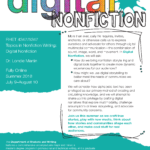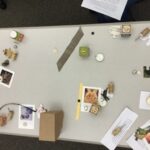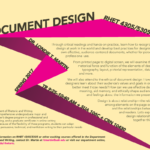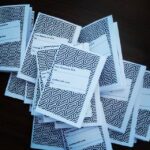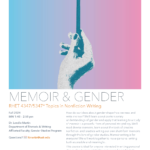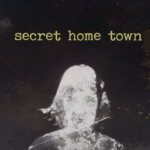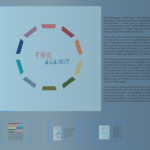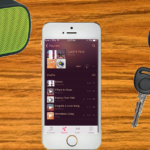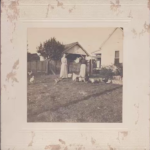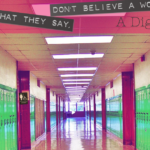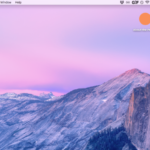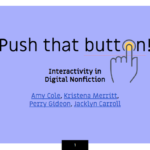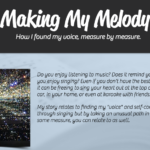Courses Taught
While at the University of Arkansas at Little Rock, I have taught the following courses:
- GNST 2300, Intro to Gender Studies
- RHET 0301, Composition Fundamentals
- RHET 1311, Composition I
- RHET 1312, Composition II
- RHET 4305 & 5305, Document Design
- RHET 4319 & 5319, Digital Nonfiction
- RHET 4347 & 5347, Topics in Nonfiction Writing: Memoir & Gender
- RHET 4371 & 5371, Writing on the Web
- RHET 7350, Independent Study: Feminisms, Rhetorics, Silences
- RHET 7390, Thesis Proposal Seminar
- SCHL 1301, Donaghey Scholars Program, Rhetoric Communication II
Below, you can find more information about the courses I regularly teach. For each course, I link to representative syllabi and assignment materials from the latest iteration of the course. I have taught all of these courses in both online and face-to-face modalities.
GNST 2300, Intro to Gender Studies
Introduction to Gender Studies is a cross-cultural, interdisciplinary analysis of gender. The course includes an examination of gender identity; social roles; sex, sexuality, and sexual orientation; and cultural impact in areas such as politics, economics, family, health, socialization, religion, and language. I have taught the course for several semesters now (online and face-to-face), and each semester I try to help students make meaningful, grounded connections between the materials we study and their lived experiences in a gendered world.
RHET 1311, Composition I
Composition I is the first half of a two-semester first-year composition sequence. At UA Little Rock, I’ve had the opportunity to teach this course online, face-to-face, and as part of a learning community pilot program. Because Composition II is a focused study of argumentation, I approached Composition I as a launch pad for argumentation. I wanted students to leave the course with a better understanding of how academic research can be informed by and benefit from personal experience and community engagement. Throughout the semester, we focused on issues related to place, community, and the spaces of our daily lives, and I asked students to explore these issues with multimodal digital presentations; personal narratives; and community-centered, research-based writing.
RHET 1312, Composition II
In Composition II, I help students deepen their understanding of how arguments work in the world. For several semesters now, I have opened Composition II with a unit on rhetorical analysis that focuses on visuals and songs. From this close look at creative modes of public argument, we move to an exploration of classical and dialogic arguments. This comparative approach helps students better understand what it means to craft ethical, effective arguments for different audiences. We end the semester by creating video essays based on research and writing from earlier in the semester. This helps students revisit the creativity of public argument while exploring the ethical considerations of multimedia persuasion. Throughout these units and projects, I ask students to approach their writing at different levels: we practice “rainbow revision” exercises to encourage attention to sentence variety and rhythm, we use copy and compose activities to explore different sentence forms, and we use workshop-based peer response activities to investigate more global concerns related to organization, thesis development, and audience appeals.
RHET 4305 & 5305, Document Design
I have taught this course face-to-face and online. In both modalities, I draw on scholarship in visual rhetoric, technical communication, and design theory to help students think critically about what constitutes “document design” (as opposed to information design, communications design, or graphic design). I have designed the course to emphasize project-based workshops that require multiple drafting cycles—from invention to final delivery through project portfolios. Major projects in the course include a personal logo, memoir book jacket cover, event flyer, and multipage digital booklet.
RHET 4319 & 5319, Digital Nonfiction
I designed Digital Nonfiction as a play-based, creative nonfiction course focused on multimodal expressions. By drawing on scholarship in visual studies, multimodal rhetorics, indigenous rhetorics, disability studies, narrative theory, and queer theory, I emphasize the role of community and the body in storytelling. As we move through units on sight, sound, touch, and space, I ask students to imagine ways we can engage our audience’s senses and be attentive to the diversity of bodies called to and invoked by our stories. In particular, we wonder: In what ways do digital composing practices open up opportunities to explore and express identities through alternative modes and forms? Where, perhaps, do those opportunities begin to dissipate? To answer these questions, I ask students to read scholarly work, engage in critical writing/questioning exercises, and participate in hands-on, play-based narrative experiments that combine both digital and non-digital techniques. To view some sample digital narratives created by students in the course, see the image gallery below.
RHET 7390, Thesis Proposal Seminar
Thesis Proposal Seminar gave me the opportunity to work closely with students as they imagined and invented research projects that would sustain them through the rest of their degree and propel them onward to other dreams. What a privilege it is to work with scholars as they find their feet and think critically about the impact their work might have on people and the communities that matter to them.
